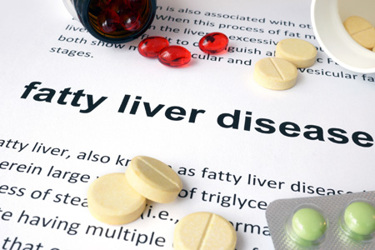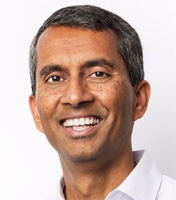Liver Disease Requires A Patient-Centric Approach To Trials

By Ed Miseta, Chief Editor, Clinical Leader

89bio was established in 2018 with a goal of helping patients with disorders of the liver. The company is focused on two large markets which CEO Rohan Palekar believes are underserved. The first is fatty liver disease, which in its late stages is called non-alcoholic steatohepatitis (NASH). The second is severe hypertriglyceridemia, or high levels of fat in the blood.
“These patients have very high levels of metabolic dysregulation, and we think we can bring value to them,” says Palekar. “Today there are tens of millions of patients in this country with fatty liver disease, but there is currently no approved therapy for NASH. And similarly, there are suboptimal therapies available to patients with high triglycerides. Up until now, the focus of treating these patients has been on cholesterol management. We believe they deserve a much better approach.”
The two diseases are also related to each other. Palekar notes when patients have more fat in their blood, that fat can accumulate in the liver. When the liver is overwhelmed and all the fat cannot be processed, it may end up causing fatty liver disease. Patients have other issues with high cholesterol and often have diabetes as well.
“We are attempting to take a holistic view of these diseases,” says Palekar. “We are looking for ways to treat the total metabolic issue.”
A Hormone Treatment

89bio has two ongoing Phase 2 studies in NASH. One is a small 20 patient trial looking at the effects of the therapy on reducing fibrosis or scarring in the liver. A second Phase 2b study called ENLIVEN will treat over 200 patients with fibrosis stage 2 or 3 NASH for 48 weeks and will focus on NASH resolution and fibrosis improvement. A third study, ENTRIGUE, for patients with high triglycerides, will focus on reducing fat in the bloodstream. If the trials produce positive results, registration trials will follow.
“In proof-of-concept studies, we saw positive changes on multiple efficacy parameters,” states Palekar. “We were effective in reducing fat in the liver by up to 70% relative to placebo, as well as improvements in cholesterol and triglycerides. That gave us confidence that our therapy could make a difference in the lives of patients.”
A Focus On Patient Centricity
In the early stages of liver disease, patients can lead a somewhat normal life. The condition is also asymptomatic, so patients may not realize they have the disease. However, as the disease progresses, it can impact a patient’s cardiovascular health. Approximately 80% of patients with NASH are obese and many also have diabetes.
“One of the things that we plan to do is to educate patients to realize that they may have liver disease,” says Palekar. “If unrecognized, it can lead to very bad outcomes over time.”
89bio hoped to design its trials in a manner that would be conducive to patients participating in them. This is especially important now as many lessons were learned in 2020 as the COVID pandemic created some havoc at sites. In the company’s latest and largest trial, participants can choose whether they prefer going onsite for visits or having them at home. Patients can also choose to administer their own medication or have it administered by site staff or home health staff.
“In earlier studies patients had to come to the clinic because the treatment was frozen when shipped to the sites,” states Palekar. “That is very common in biologics. We have since moved to a liquid formulation, which makes administration much easier.”
Since most patients in a trial are not used to self-administered injections, 89bio provided training to them on how to administer the treatment. In the future, the company hopes to migrate to a more convenient delivery device. Palekar notes diabetes patients may have an auto injector which contains the drug and is easy and convenient to administer. His company is working to develop a similar delivery device. He hopes to have a new device in place by the time the treatments reach a Phase 3 trial or by the time the therapy is approved and available to patients.
Convenience Is A Factor
89bio also wanted to ensure the treatment would be something patients could use long term. Palekar knew patients would not want to self-administer injections daily or even multiple times per week. The current dosing regimen calls for the treatment to be administered once a week or once every two weeks.
“We need to make it convenient and efficient for patients to participate in these trials,” says Palekar. “The NASH study was started in 2019 but we were executing the trial in 2020 when the pandemic hit. Since then, we have learned how to be more efficient in conducting studies and we were forced to rethink how trials should be conducted.”
Palekar hopes the changes his company made will make the trials more patient centric in multiple ways. First, bringing the trial to the patient by employing home health or telemedicine can decrease the burden of travel and time away from work and family. 89bio has contracted with home health vendors to provide this service across most of its studies. The company is also working with vendors who provide compliant technology platforms that allow remote assessments to be done directly by the investigator, with or without home health. Telemedicine, like home health, will provide convenience for participants but also allow for ongoing safety monitoring in the event of extenuating circumstances such as COVID-19, when site visits might not be feasible.
Second is the training provided to patients on how to administer the injections. Self-administration training is conducted at the site by study nurses, like the way a patient would be trained to administer their own insulin after being diagnosed with diabetes. Training is done individually and is completed once the patient demonstrates comfort and competence, usually in about an hour. However, repeat training may be conducted based on individual needs, and training is reinforced at study visits throughout the trial. Local training protocols are used, and once participants demonstrate competency and comfort, they are signed off for self-administration by a licensed trainer (RN or diabetes educator). At any time, a participant may choose to have study drug administered by site staff or home health. Palekar notes this approach has been well-received because every participant can find an option with which they are comfortable.
Finally, direct-to-patient shipment has also been implemented across all of 89Bio’s studies. The company has contracted with a specialty courier who can maintain a controlled chain of custody and make home deliveries when it is convenient for the participant. Alternatively, the drug can be processed and dispensed by sites in the traditional manner. However, the flexibility of direct-to-patient shipment allows for delivery to occur to any address, which can minimize the risk of missed doses. 89bio has been able to ship study drug to participants who were on vacation or working away from home.
Going forward, Palekar notes the focus will continue to be on helping patients participate in trials. The company is committed to providing flexibility and will not mandate the use of any services. The efforts are expected to improve both recruitment and retention in trials.
“Our mindset is focusing on those things that will bring true benefits to patients,” adds Palekar. “NASH can take years to progress, and I believe our therapy will bring real benefits to patients. We are committed to learning what is happening in the liver, but also what is happening systemically in their bodies. Our hope is that we will be able to prevent them from getting to a late stage of the disease where the cardiovascular issues will arise. We are also a fast-growing company and we put a lot of emphasis on recruiting people with a high level of commitment to our patients. You can have a wonderful therapy but having the right people and the right culture is equally important.”
